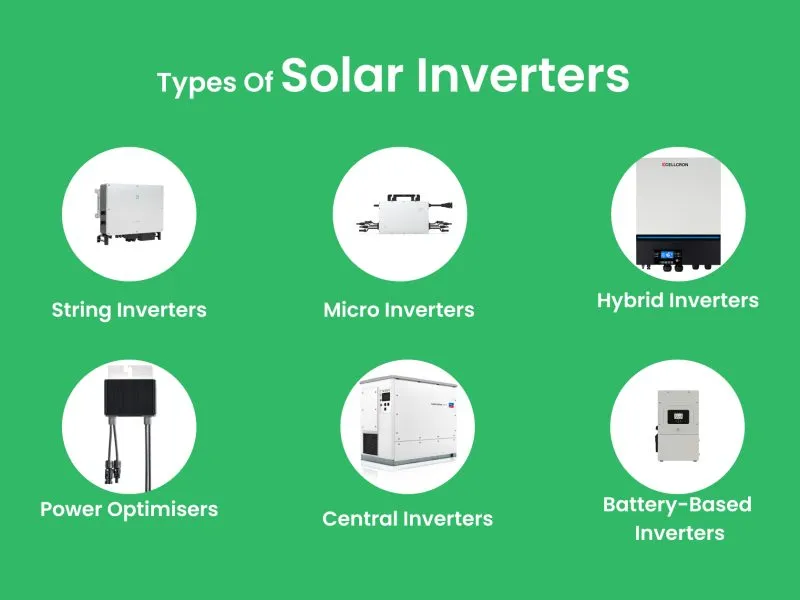Table of Contents
ToggleIntroduction:
Discover the wide range of solar inverters available for your solar energy system. In this blog post, we’ll dive into the various types of solar inverters, their unique features, and the benefits they offer. By understanding the differences between string inverters, microinverters, power optimizers, hybrid inverters, and three-phase inverters, you can make an informed decision when choosing the perfect inverter for your solar setup.
Section 1: String Inverters: Reliable and Cost-Effective Solution
Learn about the cost-effective and reliable nature of string inverters. We’ll explain how they work, the advantages they provide, and their ability to handle multiple solar panels connected in series, ensuring efficient power conversion.
Section 2: Microinverters: Enhancing Performance and Monitoring
Discover the performance-enhancing capabilities of microinverters. We’ll explore their ability to optimize each solar panel individually, leading to increased system performance. Additionally, we’ll discuss the advanced monitoring features that allow you to track the performance of each panel.
Section 3: Power Optimizers: Optimizing Efficiency and Cost Savings
Find out how power optimizers can optimize your solar system’s efficiency while maintaining cost savings. We’ll delve into the benefits of power optimizers, including their ability to maximize each panel’s output and increase overall system efficiency.
Section 4: Hybrid Inverters: Integrating Solar and Battery Storage
Explore the integration of solar and battery storage with hybrid inverters. Learn how hybrid inverters enable you to store excess solar energy for later use, improving self-consumption and providing energy independence.
Section 5: Three-Phase Inverters: Meeting Demands of Large Residential Systems
Understand the suitability of three-phase inverters for larger residential solar installations. We’ll discuss the advantages of three-phase inverters, including their higher power output capacity, improved system efficiency, and compatibility with larger electrical loads.
Conclusion:
Choosing the right solar inverter is crucial for the optimal performance of your solar energy system. By considering factors such as cost, performance, monitoring capabilities, battery storage integration, and system requirements, you can select the ideal inverter for your specific needs. Consult with a professional solar installer to ensure you make an informed decision and maximize the efficiency and benefits of your solar investment.
Disclaimer: The information provided in this blog is for general informational purposes only. The content is not intended to be a substitute for professional advice. Before making any decisions regarding solar inverters, it is recommended to consult with a qualified solar professional who can assess your specific requirements and provide tailored recommendations. While we strive to provide accurate and up-to-date information, we make no representations or warranties of any kind, express or implied, about the completeness, accuracy, reliability, suitability, or availability of the information contained in this blog. Any reliance you place on such information is therefore strictly at your own risk.


